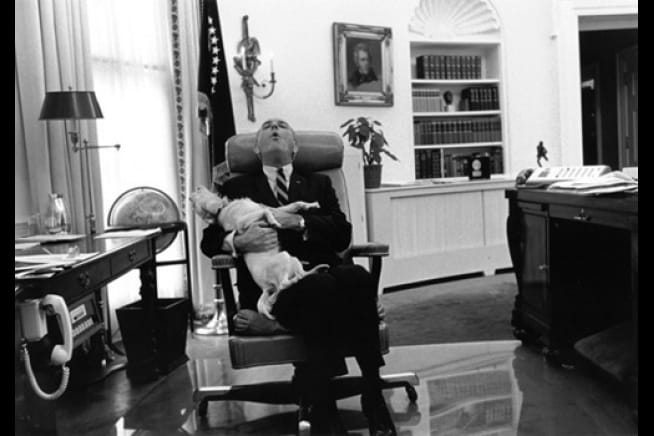A Secret of the Best Advocates

If you look at the bios of the big league advocates or lobbyists, there's a secret hidden in plain sight. And it's that your headshot needs to have you with your arms crossed looking steely eyed into the camera like You. Mean. Business.
Actually, the secret is not that. It's this: None of those bios read, "You can ask me anything about absolutely everything!"
Let's call it the Law of Specialization. These folks are smart cookies on a contained universe of issues – telecommunications, early childhood education, agricultural subsidies, public transit, defense appropriations, infectious disease.
If a legislator or staffer calls one of these specialists, not only can they go deep, they can tick off the players, the powerbrokers, the politics, the backstory. In short, they can tell a politician in 10 minutes what it would take that pol 10 (or more) hours to find out.
And this Law of Specialization is a terrific approach for the rest of us.
We could paint a thin coat of ourselves across gigantic issue areas, like climate, which is likely tangled up in hundreds if not thousands of bills in our state legislature alone. Taking it all on is a bit like trying to boil the ocean.
Or we could burrow down to a specific slice of climate, like food waste, drought, coastal erosion. The narrower our focus, the more expert we can be in it.
If I'm tracking one bill on municipal waste services, I will learn a ton by watching the committee hearing, seeing who testifies and what they say, paying attention to what committee members ask or comment on.
It'll give me a sense of who the stakeholders are, how this issue plays in certain districts, why it might or might not pass out of committee and advance to the floor. And all of that specialized knowledge tees me up to be a stellar resource for my legislators.
Bonus points if I do all this with an eye towards what my legislators will want to know about how this bill would impact their districts. If it's a coastal erosion bill, will that upset a key shipping constituency. If it's a drought bill, how will the local water district feel about it.
In the course of one afternoon, a politician may take a constituent meeting on suicide prevention, vote on a data privacy bill, attend a press conference on surprise medical billing, get approached by a reporter about the rape kit backlog, and cosign a letter on paid family leave. Politicians cannot be expert on every one of these issues. They need others to help shape their positions.
This is just as true for staffers. When I worked in Congress, I handled budget, banking, small business, taxes, trade, and foreign policy for my boss. I couldn't know everything about every issue, but I could know the specialists who could separate the signal from the sound for me. In fact, I often asked their perspective on issues outside their expertise because I came to respect their opinions generally.
We could be some of those specialists.
The other beauty to this is if I become an ace on municipal waste services, I now know how to more efficiently track bills on pesticide ordinances, school vouchers, speed limit setting, and beyond. Tracking one bill is training for tracking just about any other bill.
For some of us, this specialization can be hard: there are so many good problems to work on. But as Rachel Carson wrote, "In nature, nothing exists alone." We dip into one part of policy only to find it's connected to a great many other parts of policy. To significantly paraphrase John Donne, No man, woman, human, or piece of policy is an island.
And specialization is kinder to our full schedule and full lives. The nuance and complexity of one bill will be more than enough to manage.
So when it comes to choosing how many issues to focus on, I'll quote a sign I once saw at an environmental demonstration: "All we need is less."
